The Legislature on Tuesday completed its override of Gov. Paul LePage’s veto of the state’s next two-year budget, ending a fierce six-month battle that will yield modest income and property tax cuts for many Mainers, among other tax changes.
During the course of the battle, LePage saw most of his initiatives overturned or rejected and wound up largely on the sidelines, firing criticisms at Democrats and Republicans alike as they forged a $6.7 billion spending plan that a majority could accept.
The House voted 109-37 to overturn the governor’s veto. The Senate voted 25-10, one vote more than needed to complete the override.
The budget will now become law – and none too soon.
Funding for state government would have expired at midnight Tuesday. The Legislature needed two separate votes with two-thirds majorities to override the governor’s veto and avoid a shutdown of state government.
Tuesday morning, about 50 conservative activists gathered at the State House and urged lawmakers to support LePage and defeat the bipartisan budget deal. The governor has criticized the deal because the lawmakers who crafted it rejected a number of his policy initiatives.
Legislators brushed aside the governor’s objections and completed a session in which he alienated former Republican allies and unleashed a torrent of vetoes that he has admitted was meant to delay the end of a bruising six-month session.
LePage issued a four-page veto message Monday that included photos of drug trafficking suspects, crying babies and the disabled to illustrate policy initiatives that the Legislature rejected. The governor accused both Republican and Democratic lawmakers of dragging their feet before patching together a secretive budget deal that lacks the elements he favors.
House Speaker Mark Eves, D-North Berwick, defended the budget deal, which he and other legislative leaders completed after negotiations over tax cuts and welfare changes stalled in the Legislature’s budget committee. Eves said there was a lot for Mainers to support in the budget deal, including a $134.5 million tax cut, additional education funding and a welfare initiative designed to encourage recipients to find employment.
Rep. Deborah Sanderson, R-Chelsea, urged House members to vote to sustain the governor’s veto. She argued that the budget contained spending provisions that took away money from programs for the needy to fund less important initiatives.
“Let’s let those (initiatives) stand on their own two feet,” she said, adding that the state budget should only contain priority funding.
PRESSURE TO AVOID A SHUTDOWN
Rep. Jeff McCabe, D-Skowhegan, the House majority leader, rejected Sanderson’s assertion that lawmakers could reject the budget deal and avoid a government shutdown. He said a temporary budget would likely violate the state Constitution.
“If we don’t vote for this budget there is no way to stop a state shutdown,” McCabe said.
Rep. Ken Fredette, R-Newport, the House minority leader, under intense pressure to hold enough of his caucus to achieve a two-thirds majority, told lawmakers that they had 13 hours to pass the budget. He touted the tax cuts in the budget deal, including exempting the income tax on military pensions, a priority for Republicans and the governor.
“I respect those that disagree with me, but at the end of the day … I believe that we will be faced with a government shutdown,” he said, adding, “This is divided government, folks, you don’t get everything that you want.”
The budget includes an income tax cut paid for with changes to the sales, meals and lodging taxes. The current 5.5 percent sales tax was scheduled to decrease to 5 percent Wednesday. The budget deal will keep the tax at 5.5 percent to help fund the income tax cut, which will be phased in over the next two fiscal years.
Meals and lodging taxes will increase. The current 8 percent meals tax was scheduled to fall to 7 percent Wednesday. The budget deal will maintain the 8 percent tax for both meals and lodging until Dec. 31, then increase the lodging tax to 9 percent on Jan. 1, to capture more revenue from tourists.
Maine income tax brackets also will change under the new budget.
Under current law, the top marginal income tax rate is 7.95 percent for people earning $20,900 or more per year, 6.5 percent for people earning $5,200 to $20,899, and 0 percent for people earning up to $5,199.
The budget agreement lowers the top rate to 7.15 percent for a single filer in 2016 and raises the income threshold to $37,501 and higher. Those earning $21,051 to $37,500 will pay 6.75 percent, and those earning $0 to $21,050 will pay 5.8 percent.
Democrats said that under the revised tax structure, many Mainers earning up to $5,200 will have to start filing income tax forms to receive the full tax cuts.
The tax brackets will change in 2017, but the rates will remain the same. The top rate will kick in for those earning $50,001 or more, while the middle rate will cover those earning from $21,400 to $50,000. The income threshold for the bottom rate will remain the same.
The budget also will eliminate the income tax on military pensions, and increase the current homestead property-tax exemption from $10,000 to $15,000 in 2016.
GOVERNOR CRITICIZES LEGISLATURE
LePage used his veto letter Monday to reiterate his criticism during the past two weeks that lawmakers have not adequately funded his drug enforcement proposal or services for disabled Mainers who qualify for Medicaid but are on waiting lists.
The two-year budget includes funding for all of those initiatives, but not in the amounts that LePage requested in his original proposal.
“The Maine people made it quite clear in November they want tax relief and welfare reform,” he wrote. “As soon as legislators returned to Augusta, they got busy ignoring the wishes of the Maine people. They dilly-dallied for five months, then patched together a business-as-usual budget at the last minute.”
He said the “secretive, late-night” deal was based on the interests of a “handful of politicians, not what is best for the 1.3 million people of Maine.”
In January, LePage surprised many in the Legislature when he proposed a budget with a tax overhaul. That plan would have raised sales taxes and removed exemptions on some goods and services to pay for an income tax cut. Ultimately, lawmakers, including Republicans, balked at the proposal, rejecting the sales tax increase.
LePage said opponents of the plan were unable to comprehend it.
“My budget proposal was widely acknowledged as a bold and comprehensive plan to modernize, reform and restructure how Maine does business,” he wrote. “Unfortunately, it proved too big a concept for some of the small minds in the Legislature to grasp.”
Send questions/comments to the editors.

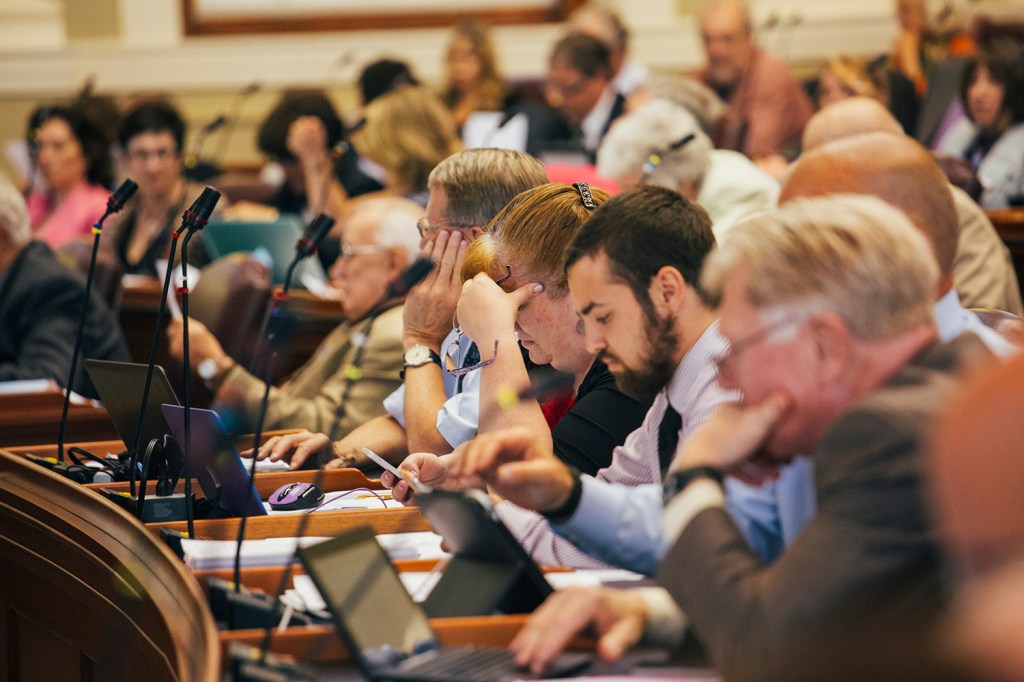

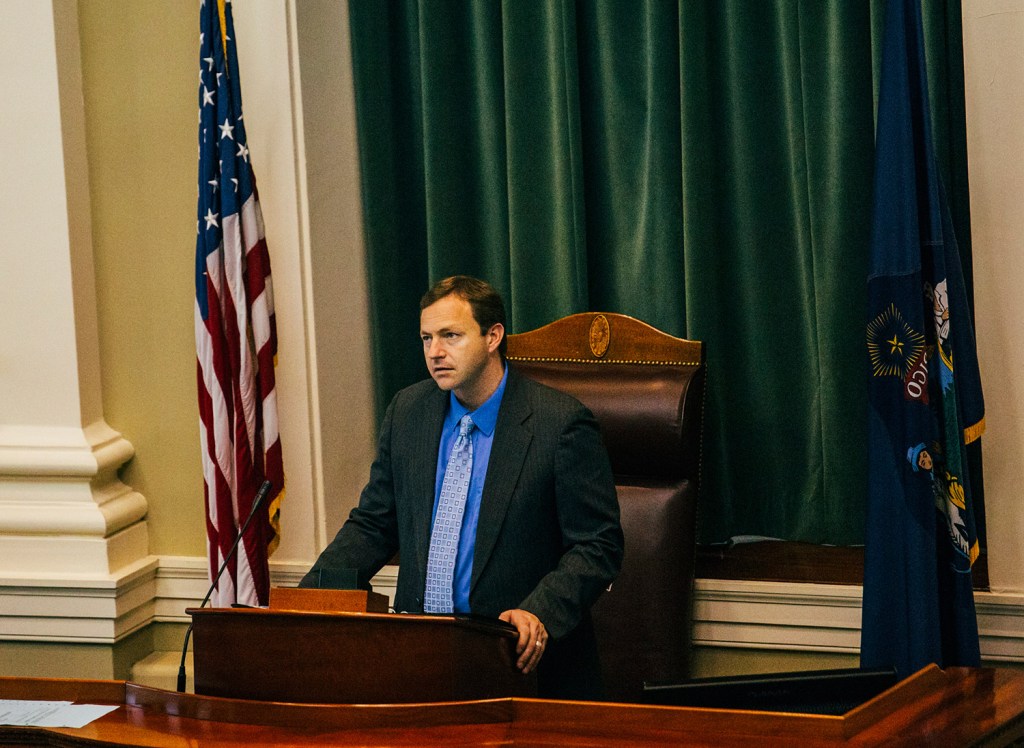
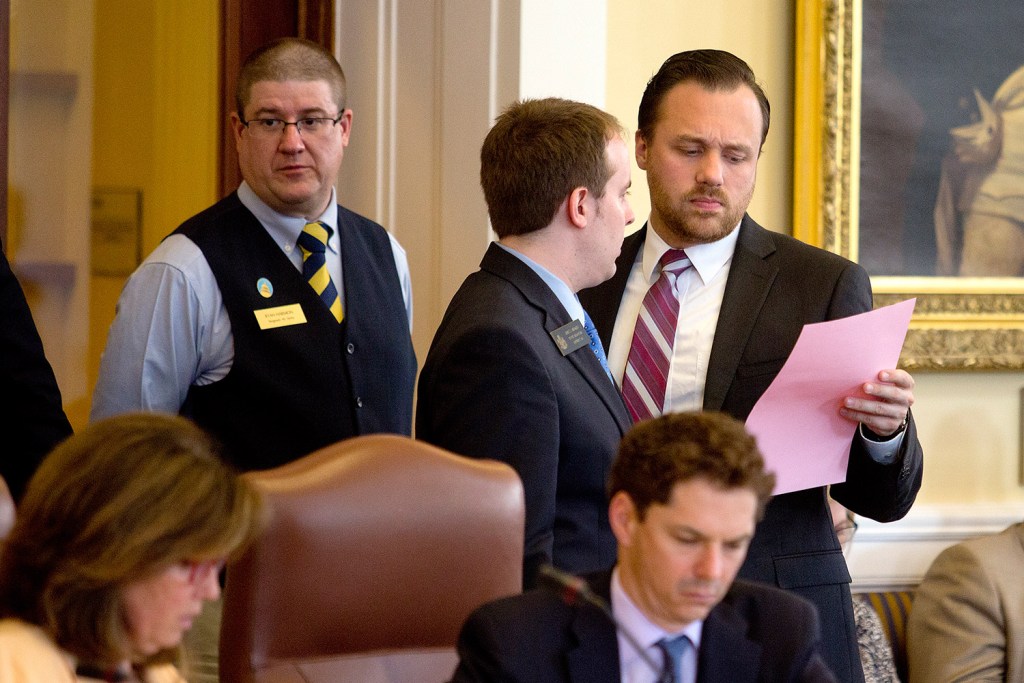


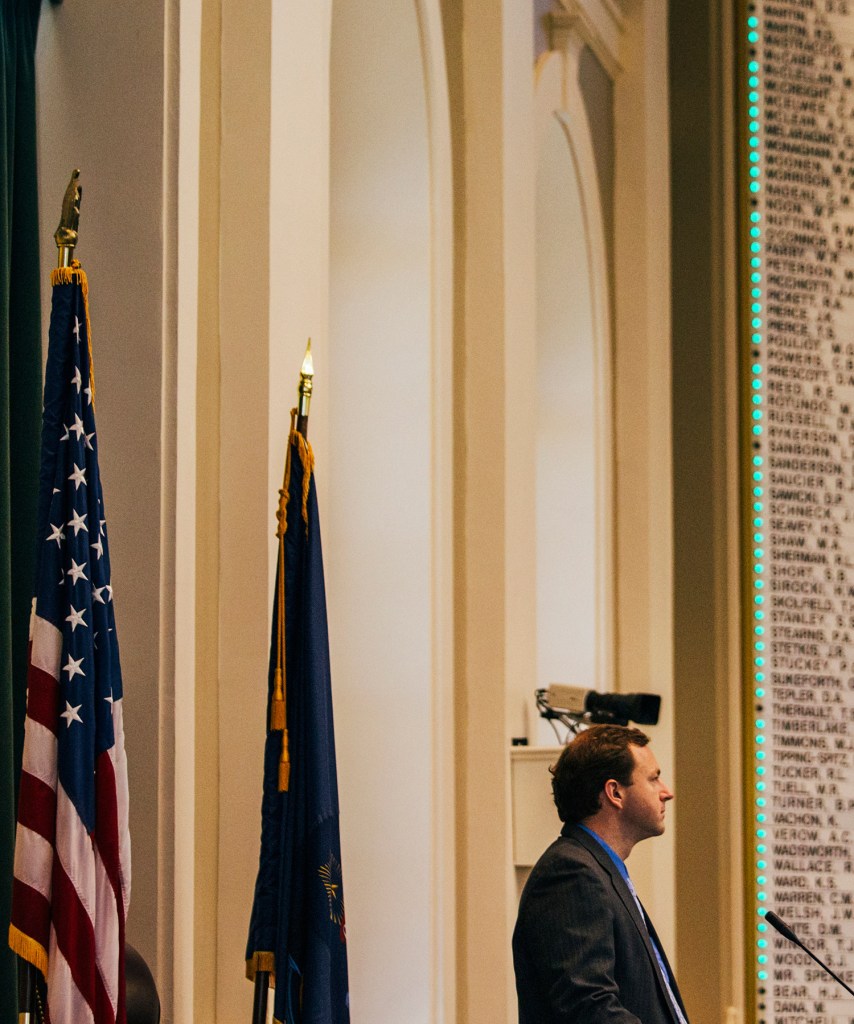
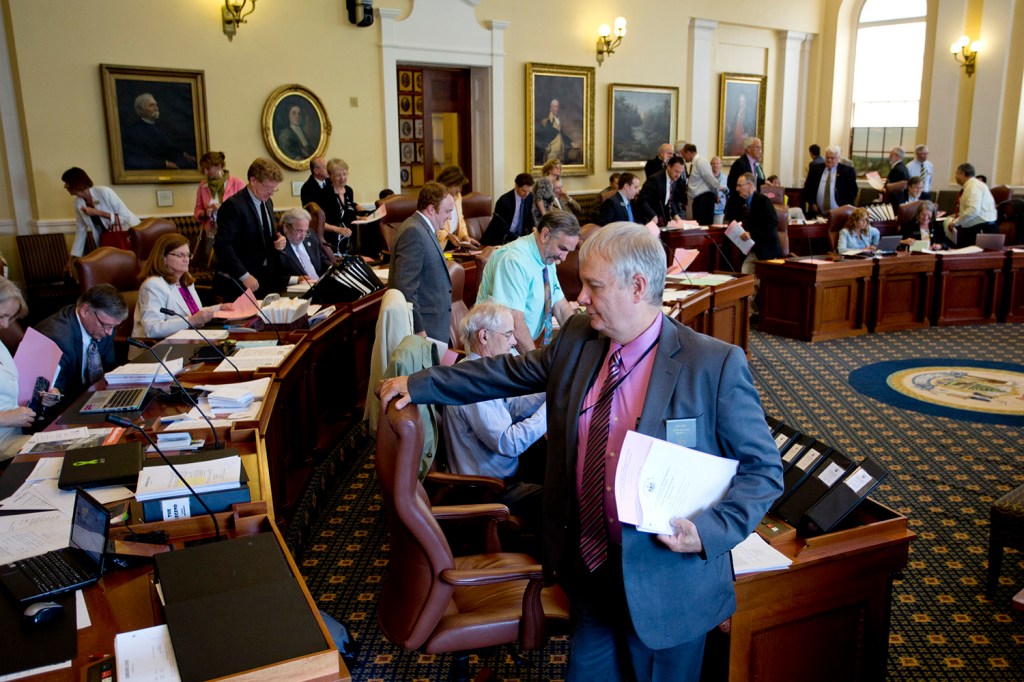
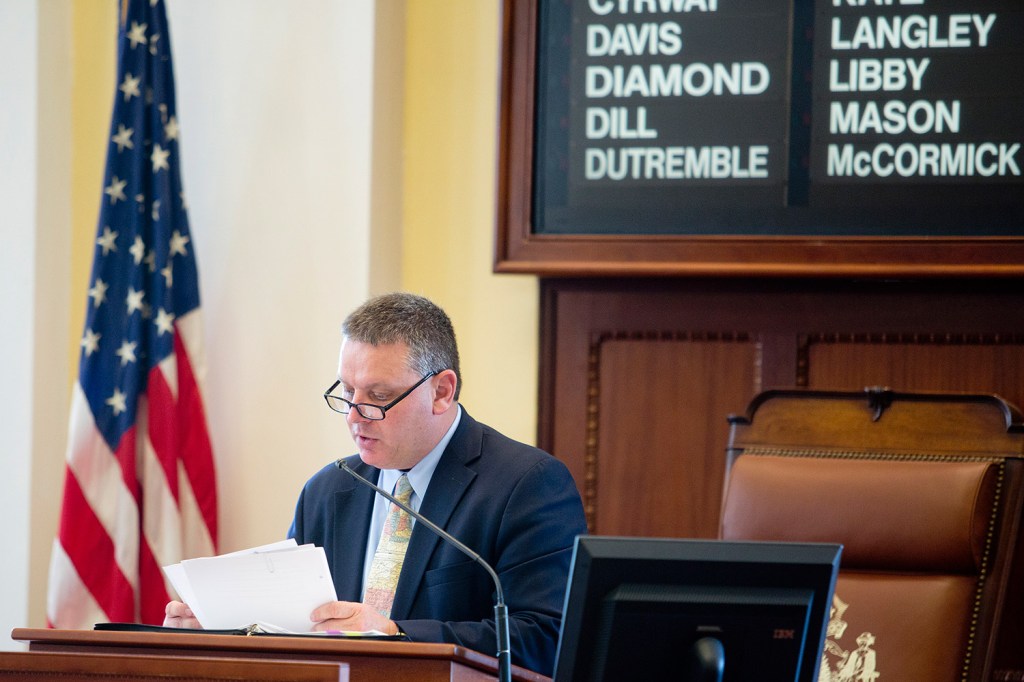
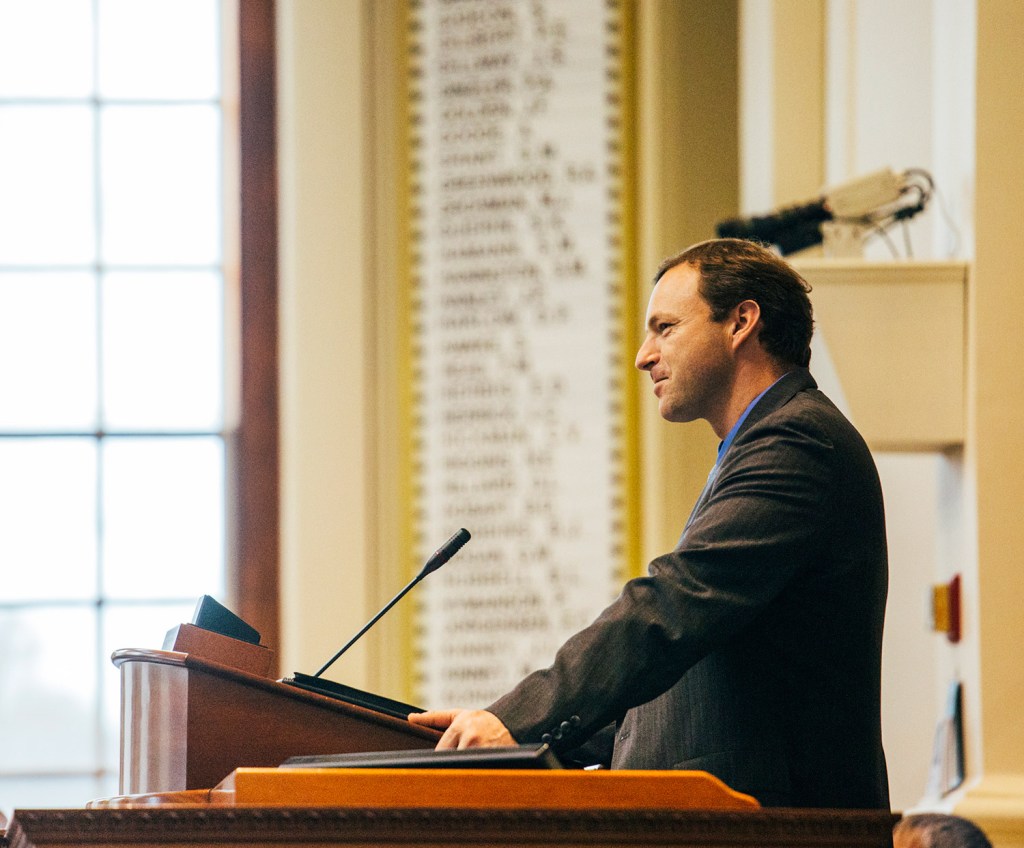
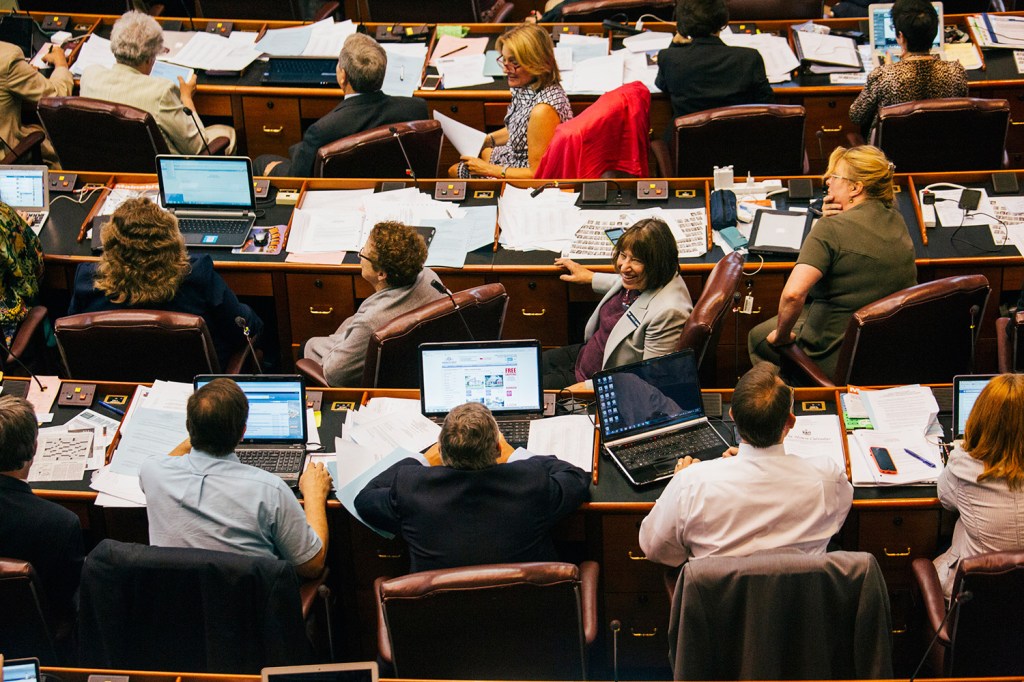



Success. Please wait for the page to reload. If the page does not reload within 5 seconds, please refresh the page.
Enter your email and password to access comments.
Hi, to comment on stories you must . This profile is in addition to your subscription and website login.
Already have a commenting profile? .
Invalid username/password.
Please check your email to confirm and complete your registration.
Only subscribers are eligible to post comments. Please subscribe or login first for digital access. Here’s why.
Use the form below to reset your password. When you've submitted your account email, we will send an email with a reset code.